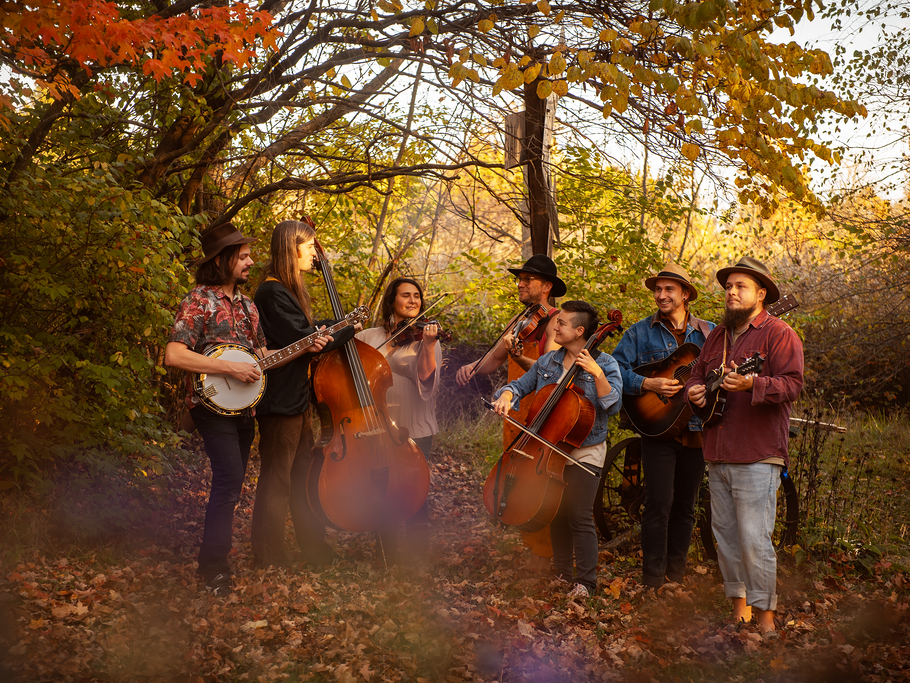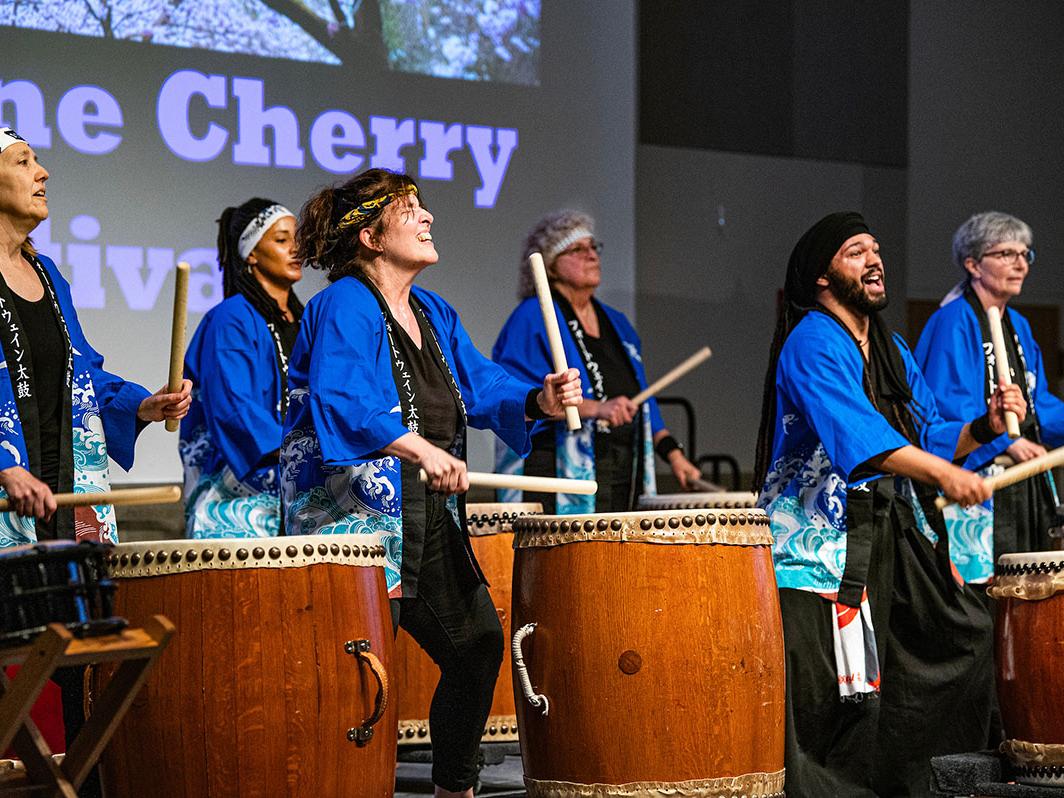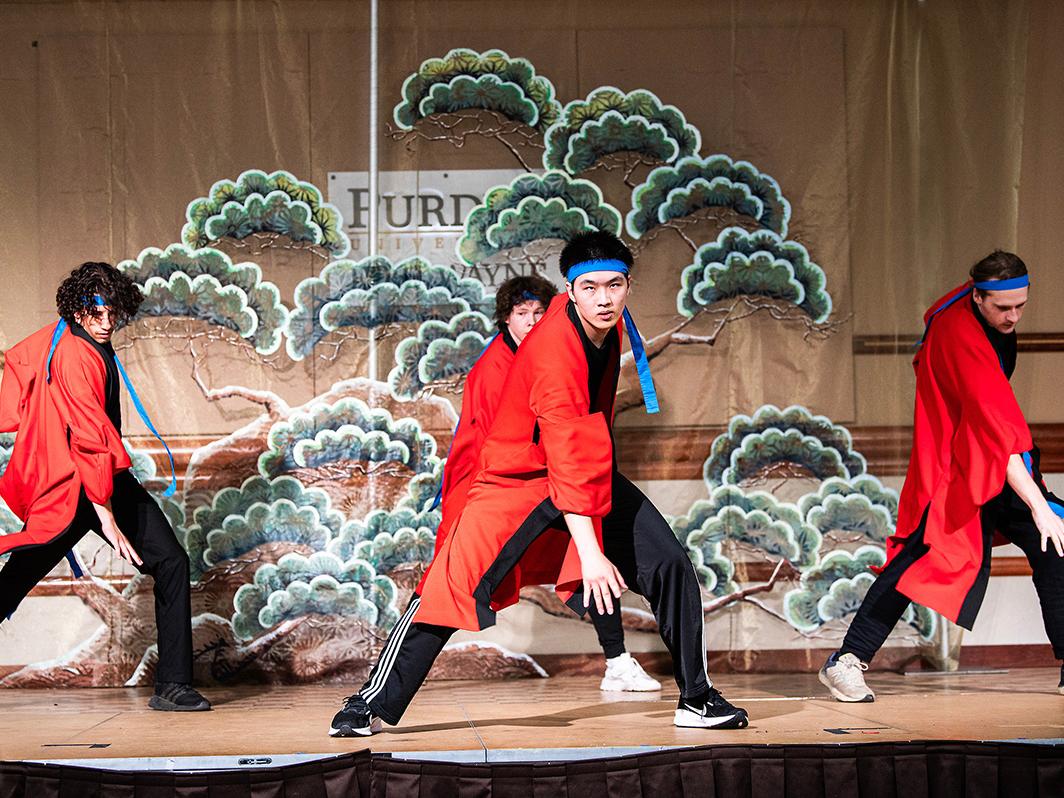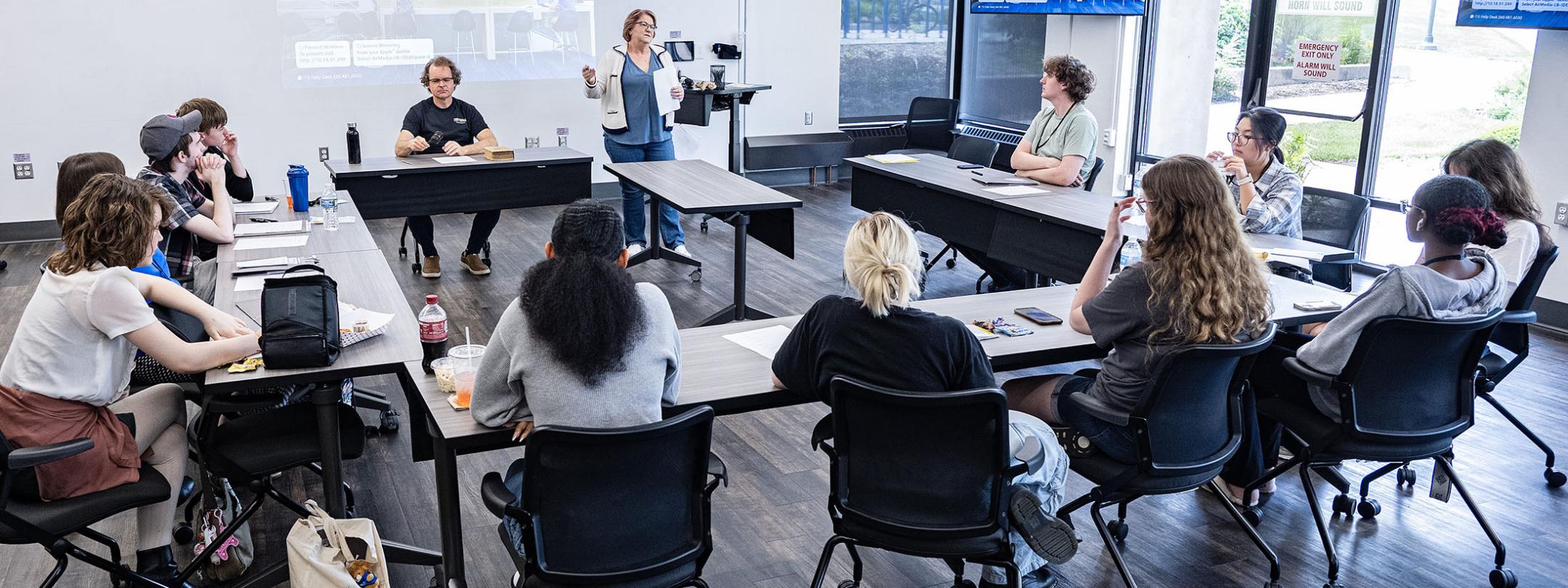
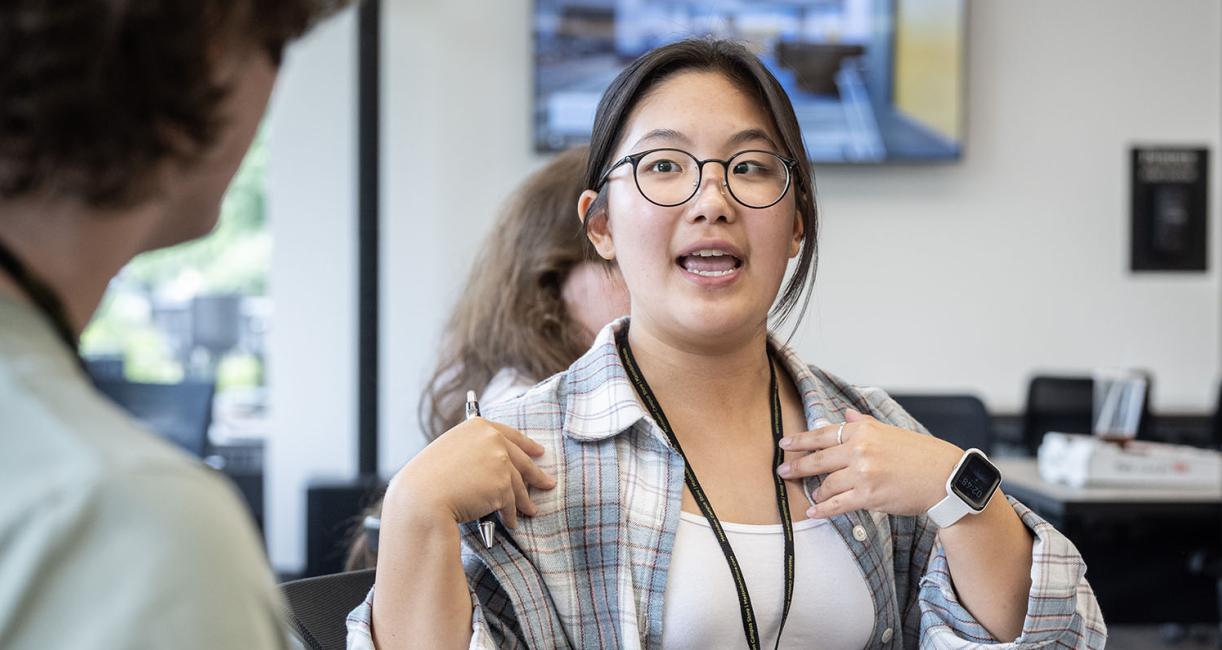


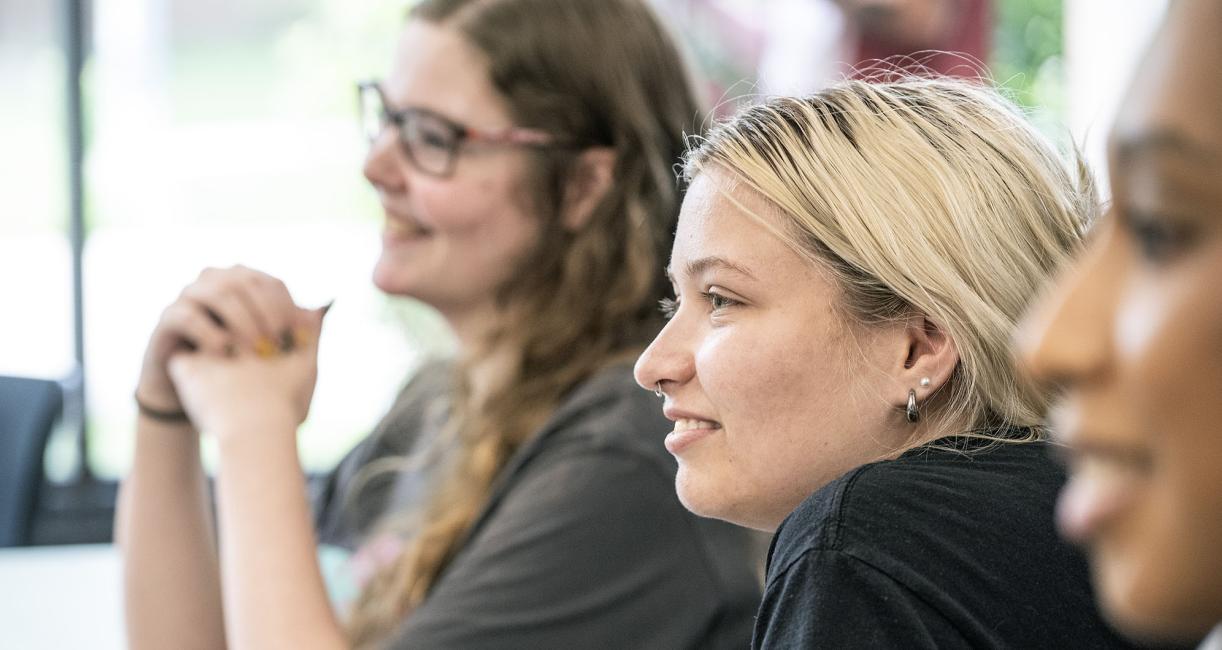
CoLA Collaboratory provides relaxed introduction to mock trials
By Blake Sebring
June 20, 2025
Much like a broadcast network trying to find a broader audience, the College of Liberal Arts at Purdue University Fort Wayne recently attempted to utilize a popular TV show to attract participants to its summer camp, The Collaboratory.
One of the sessions called “So you want to be Harvey Specter?” was inspired by the series “Suits.” Staci Bougher, a limited-term lecturer, introduced a lighter version of the mock trials she utilizes in her business law class to a group of 10 high school students.
During fall and spring semesters, Bougher has eight weeks to prepare her PFW students for the end-of-the-semester event, bringing in local judges and bailiffs to add some gravitas to the proceedings, which also account for a good portion of the students’ grades. During the CoLA summer camp, she had a one-hour session to cover as much ground as possible, with Damian Fleming, associate professor of English and linguistics, filling in as the judge to mostly bang a gavel.
Bougher selected the 1985 New Jersey vs. TLO as her signature case because it applied to teenagers. During that case, a student filed suit to question whether school officials had the authority to search her purse after she was suspected of using and selling drugs on the school campus.
The case advanced to the U.S. Supreme Court, where the justices voted 6–3 that school officials do not require a warrant or probable cause to search student belongings. Students have some legitimate expectation of privacy at school, but it must be balanced against the needs of school authorities to maintain an educational environment, the court ruled.
Bougher’s primary goal was offering campers a chance to experience the judicial system in a fun and entertaining way.
“I didn’t want them to be intimidated,” Bougher said. “I wanted to keep it informal and relaxed because they’re high school students, and it’s summer. The expectations are much different for a summer camp than they are for a regular class, obviously.”
That attitude was backed up almost immediately when Fleming administered the oath to witnesses by saying, “Do you swear to tell the whole truth and all that?” He’s obviously an actor who perfectly understood his role.
There were a few times when giggles interrupted the flow of the proceedings, such as when the defense attorney kept asking questions that seemed to help prove the prosecution’s case.
The case lasted a little under an hour, with Fleming ruling in favor of the prosecution before everyone rushed to head home for the day. They returned the next day with just as much enthusiasm.
“I think the week was very educational and engaging,” said Atticus Meussling, a Leo High School senior, who plans to attend PFW to become a secondary education teacher with a concentration in social sciences. “All the faculty were very kind, and I learned a lot from them. I want to put the same kind of energy into teaching my students in the future.”
Following feedback from last year’s first Collaboratory, Janet Badia, dean of the College of Liberal Arts, asked her staff to concentrate on more interactive efforts rather than traditional lectures. Along with meeting new friends from schools across the county, the students were engaged in what was being offered.
Daniel Patten, assistant professor of criminal justice, interested them in a murder mystery game that pushed critical thinking skills. Allison Singleton from the Allen County Public Library’s Genealogy Center guided students through examining social change in African American communities using historical records. New Department of History faculty member Kathryn Angelica, a visiting assistant professor, allowed the teenagers to study the three branches of the United States government and act out skits.
Michelle Kelsey, chair of the Department of Communication, and Stevie Scheurich, assistant professor of the Women’s, Gender, and Sexuality Studies program, combined to discuss writing for social change by helping the students produce their own zines, which are self-published, small-circulation booklets or pamphlets. In the only returning offering from last summer, Emily Tock, information services and instruction librarian, introduced the art of antique bookbinding.

